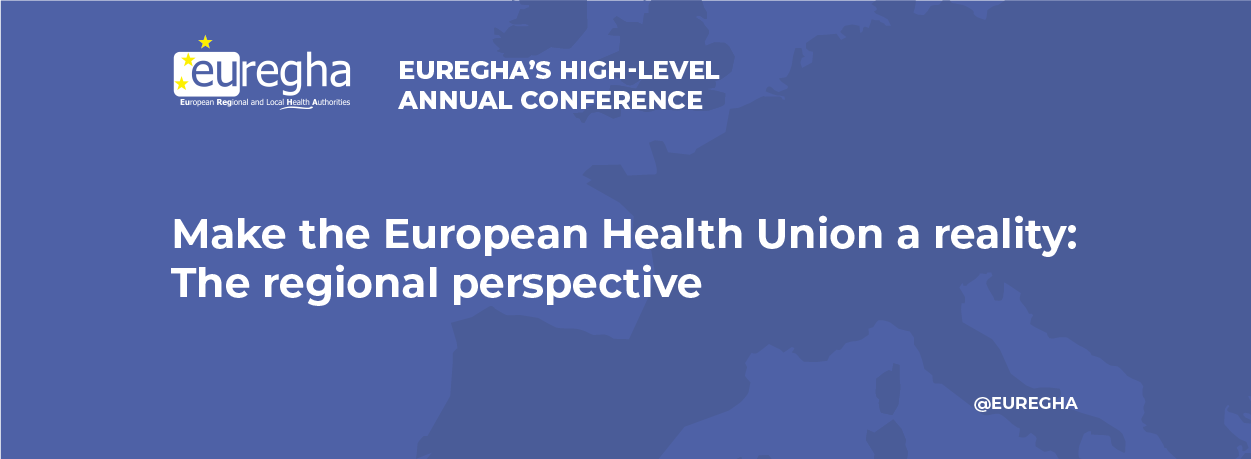
On 9 December 2021, EUREGHA – the reference network of European Regional and Local Health Authorities – held is High-level Annual Conference. The conference, moderated by EUREGHA Chair Giovanni Gorgoni, brought together EU civil servants, Members of the European Parliament, regional policy makers, and representatives of local health ecosystems to discuss how best to cooperate for an optimal health care system and work towards a European Health Union. A topic high on the EU agenda, as demonstrated by EPSCO Council conclusions on strengthening the European Health Union two days prior to this conference.
Cristian-Silviu Buşoi, Member of the European Parliament and Chair of the ITRE Committee, outlined the necessary elements for a strong Health Union: political momentum, financial investments, and a general paradigm shift in the approach to health care policies. Not only should we be prepared for possible pandemics, but it is also necessary to decrease health inequalities throughout the EU by focusing on person-centered health care.
Normunds Popens, Deputy Director-General, Director General for Regional and Urban Policy at the European Commission, gave a detailed explanation about the role of European Structural and Investment Funds within the context of the European Health Union. He also touched upon the importance of digital innovation, expressing his support for a Thematic Platform for Health and Wellbeing under the Smart Specialisation framework to support better innovation in health, an objective at the heart of EUREGHA’s vision.
Maya Matthews, Head of Unit B1 Performance of Health Systems at the European Commission (DG SANTE), drew attention to the importance of sharing regional best practices, which the European Commission plans to facilitate through a Joint Action with twinning activities, replication pilots, peer learning programs, and more, kicking off after the summer of 2022. She also said health now holds a prominent place in Recovery and Resilience Plans, and all Member States received specific recommendations on health related to their plans submitted under the Recovery and Resilience Facility.
Irina Kalderon Libal, Policy Officer eHealth, Wellbeing, and Ageing at the European Commission (DG CNECT), addressed the issues of demographic change and the European Health Data Space. Demographic change adds pressure onto our health systems but innovative technologies and digital services can support people in active and healthy ageing, which is the focus of the European Commission’s Silver Economy Strategy.
During the following roundtable discussion, EUREGHA members and regional health system representatives had a fruitful exchange on the role of regional actors in the creation of a European Health Union.
Dr. Sally Lewis, Director of the Welsh Value in Health Centre, highlighted the importance, now more than ever, to examine health systems through the lens of value. Andrea Pavlickova, International Engagement Manager at TEC Scotland, said that involving communities in a meaningful way and creating ownership that extends beyond projects are factors that could solidify the position of regional actors in EU health care. Solvejg Wallyn, Policy Officer at the Flemish Community Agency Care and Public Health, echoed this sentiment, adding that there is a need for mechanisms facilitating this from an EU level. Maria Luisa Moro, Director at Agenzia Sanitaria e Sociale Emilia-Romagna, spoke about the potential of Europe’s Beating Cancer Plan for enabling problem-solving dialogues between EU, national, regional, and local levels, to solve problems not only related to cancer but to the whole European Health Union.
EUREGHA also launched a new booklet showcasing best practices in Cancer care from our members.
Related documents and links


